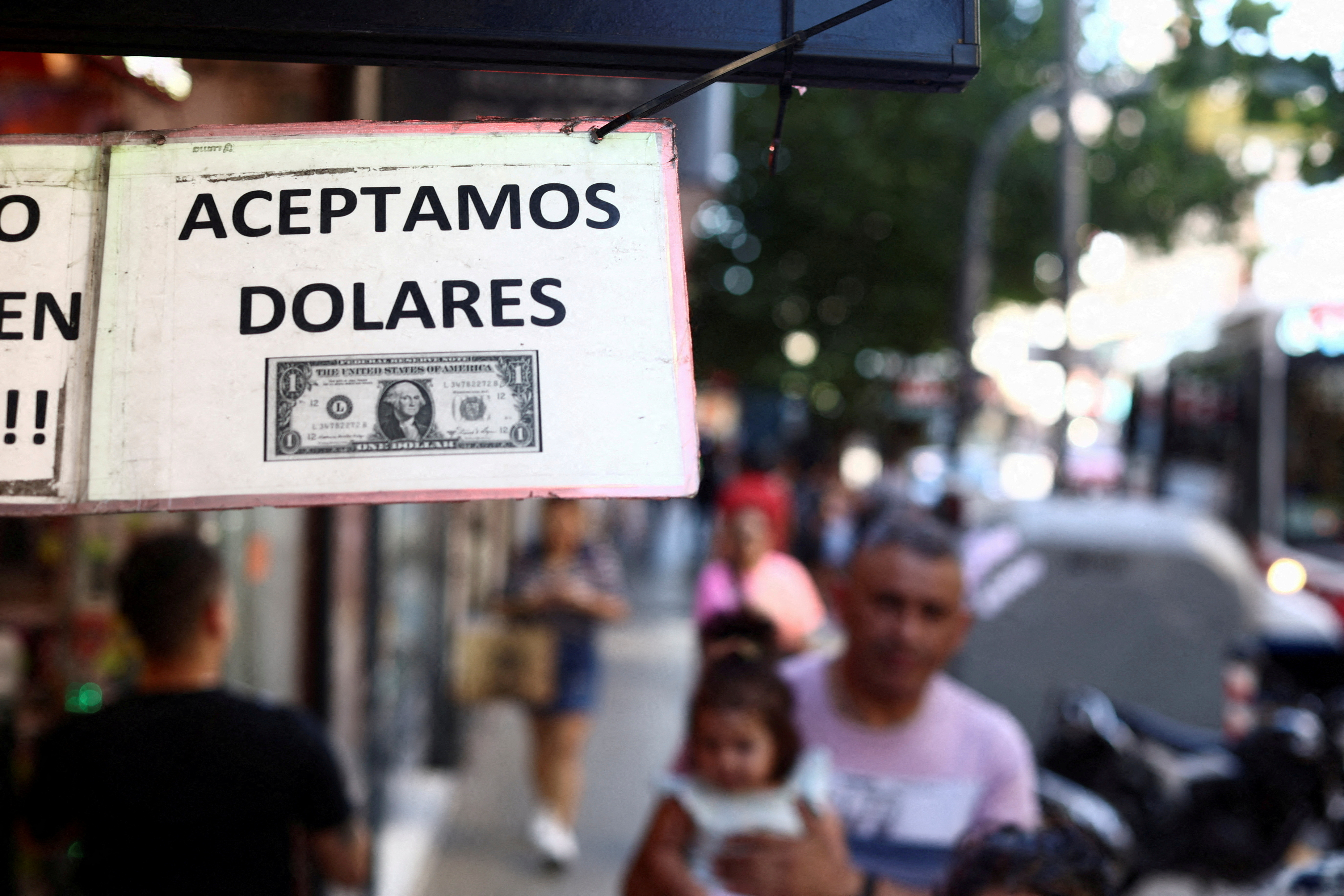Argentina is easing foreign currency reporting rules to encourage residents to start using an estimated $271 billion in cash dollars squirreled away in mattresses and foreign bank accounts, long held by Argentines as a hedge against decades of economic turmoil.
Argentines will be able to use dollars without declaring where they came from, presidential spokesman Manuel Adorni said at a press conference on Thursday. Previously, the dollars could not be used without declaring their origin, which triggered taxes.
The underground cash stash dwarfs a recent $20 billion program from the International Monetary Fund and would prop up the peso if even a fraction of it was returned to the economy.
But many Argentines are wary of fessing up to what they hold.
Chronic economic instability has led them to shun local banks, instead relying on cold, hard cash stuffed under mattresses, stored in safety-deposit boxes or sent to accounts abroad.
National statistics agency INDEC estimates there is $271 billion in foreign currency outside of the formal banking system, and analysts believe Argentines hold one of the world’s largest troves of dollars abroad.
Economy Minister Luis Caputo declined to estimate how much the government was hoping to bring back onto the books.
The measure is set to be formalized in a decree from President Javier Milei, Adorni said. It widens a tax amnesty scheme rolled out last year which lured tens of billions of dollars backinto circulation.
A bill will later be sent to Congress with the same proposals as the decree, Adorni said, which would give the new rules greater staying power.
That will “protect (the measure) from future administrations,” Caputo said, who urged people to “vote correctly” in elections later this year to ensure continuity in the amnesty scheme.
Many Argentines feel burned by previous administrations that rolled back amnesty measures, forcing them to pay up on funds meant to be tax-free.
“This isn’t about drug traffickers hiding money, it’s about the vast majority of Argentines, who were abused by the system for years,” Caputo said.
The IMF warned on Thursday that the scheme must comply with international anti-money laundering standards.
Caputo brushed off those concerns, joking that he doubted criminals would want to formalize their funds. Officials added funds believed to be obtained through illicit means would be investigated.






Click here to change your cookie preferences